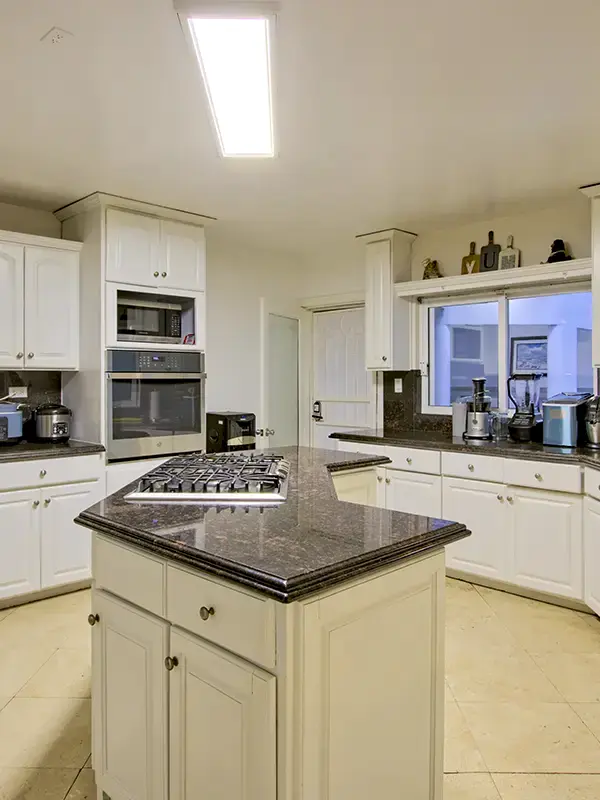Drug and Alcohol Detox
In the United States, the battle against substance abuse continues to be a significant public health challenge. With 5.8 percent of the global population engaged in illegal drug use, the US has seen its fair share of this global issue. The fight against the “War on Drugs” reflects the country’s ongoing struggle with substance dependence and the quest for effective solutions.

What is Detoxification?
Detoxification is the crucial first step towards recovery from substance use disorders (SUD). It involves the elimination of drugs, alcohol, and toxins from the body while managing the withdrawal symptoms that emerge as the body adjusts to the absence of these substances.
This process lays the groundwork for a comprehensive and holistic treatment experience, beginning the journey towards healing and sobriety.

Symptoms of Alcohol and Drug Addiction
Recognizing the symptoms of drug and alcohol addiction is crucial for understanding when to seek help. These symptoms can manifest physically, psychologically, and behaviorally, indicating a deepening dependence on substances.
In alcohol addiction, the body may undergo severe withdrawal symptoms if alcohol use is suddenly reduced or stopped. These can include shakes, insomnia, nausea, and, in severe cases, delirium tremens, characterized by confusion, rapid heartbeat, and high fever. The craving for alcohol becomes a compelling need, overshadowing all other priorities.
Drug addiction presents a similar pattern, with cravings and withdrawal symptoms tailored to the specific substance. For example, opioid withdrawal can lead to muscle aches, agitation, and severe cravings, while withdrawal from alcohol can result in severe alcohol withdrawal symptoms such as delirium tremens (DTs). The treatment process for these addictions often begins with detoxification, aiming to manage these withdrawal symptoms under medical supervision.
The Process of Detoxification: What Happens During Alcohol or Drug Detox?
Detoxification is tailored to each individual’s needs, considering factors like the substance used, duration of use, and any co-occurring mental health disorders. The process typically unfolds in three stages:
1. Evaluation
The medical team conducts an initial screening to assess physical and mental health, utilizing blood tests to gauge substance levels in the body, which is important for patients with medical conditions related to substance and alcohol use. This step is critical in developing a personalized long-term treatment plan.
2. Stabilization
Through medical and psychological support, patients are stabilized to prevent harm. This stage often includes the administration of medications to alleviate withdrawal symptoms and complications.
3. Preparing for Treatment
The final step of detox prepares patients for entering a comprehensive treatment program, focusing on overcoming medical conditions associated with prolonged drug abuse. Patients are briefed on what to expect next, easing the transition into inpatient or outpatient rehabilitation, where the chances of success are significantly heightened, particularly for those experiencing withdrawal syndrome.
Medications Commonly Used in Detox to Manage Withdrawal Symptoms
The strategic use of medications during the detoxification process is vital for ensuring patient comfort and preventing serious health complications. Our approach to medications in managing symptoms of alcohol withdrawal includes:
Anticonvulsants
Primarily used to prevent seizures that may occur during alcohol withdrawal, anticonvulsants stabilize the brain’s electrical activity, ensuring a safer detox process.
Benzodiazepines
These medications are effective in managing anxiety, agitation, and the severity of withdrawal symptoms associated with both alcohol and benzodiazepine detox. By calming the central nervous system, benzodiazepines may be used to help patients navigate the initial stages of sobriety with reduced discomfort.
Methadone
A cornerstone of opioid withdrawal management, methadone mitigates cravings and withdrawal symptoms, facilitating a smoother transition away from opioid dependency. Its controlled administration under medical supervision supports long-term recovery goals by reducing the risk of illicit opioid use.
Buprenorphine
Known for its dual action of easing opioid withdrawal symptoms and blocking the euphoric effects of opioid use, buprenorphine represents a critical component of medication-assisted treatment. It offers a less intense detox experience, allowing patients to engage more fully in the recovery process.
Phenobarbital
While its use has diminished in favor of safer alternatives, phenobarbital may be employed in specific cases to manage withdrawal symptoms. Due to its potential dependence, its administration is carefully monitored to ensure patient safety.
Each medication is selected based on the individual’s health profile, substance use history, and specific withdrawal risks. Our medical team’s expertise ensures that each patient receives the most appropriate and effective medication regimen for their detox journey, including those undergoing alcohol detoxification.

How Long Does Detox Take?
The length of detox varies, influenced by the type of substance and individual health conditions. While alcohol withdrawal symptoms may subside within a week, detox from benzodiazepines and other drugs might extend to two weeks or more. However, the focus extends beyond the detox period to include long-term strategies for preventing relapse and managing triggers, especially in the treatment of alcohol dependence.
Drug and Alcohol Detox Programs at Twilight Recovery
Twilight Recovery offers a comprehensive and personalized approach to detoxification and recovery, ensuring that each client’s journey is effective and compassionate. Here’s a closer look at our detox programs and addiction treatment options:

Alcohol and Drug Detox
Our alcohol and drug detox programs provide a safe and medically supervised environment for clients to undergo detoxification. These programs are designed to manage withdrawal symptoms and prepare clients for the next steps in their recovery journey.
Residential/Inpatient Treatment
In our residential/inpatient treatment program, clients receive round-the-clock care in a supportive and structured environment. This level of care is ideal for those needing a more immersive treatment experience to focus on their recovery without the distractions of daily life.


Outpatient Treatment
Our outpatient treatment programs offer flexibility and support for clients transitioning back into their everyday lives or those requiring a less intensive level of care.
Clients can maintain their daily responsibilities while continuing their recovery journey, addressing withdrawal syndrome through a flexible substance abuse treatment program.
Aftercare
Our aftercare program is designed to provide ongoing support and resources to clients who have completed their initial treatment phase. This crucial step ensures clients have the tools and community support to maintain sobriety and continue their recovery.

Specialized Treatment for Alcohol and Drug Withdrawal
Medication Assisted Treatment (MAT)
MAT utilizes medications, in combination with counseling and behavioral therapies, to provide a “whole-patient” approach to the treatment of substance use disorders and alcohol use disorders too.
Dual Diagnosis Treatment
For clients facing both substance use and mental health challenges, our dual diagnosis treatment program offers integrated support to address both conditions simultaneously, promoting a more holistic recovery.
Therapy for Alcohol and Drug Rehab
Individual Therapy
Our individual therapy sessions allow clients to work one-on-one with a therapist, exploring the root causes of their addiction and developing personalized coping strategies.
Group Therapy
Group therapy provides a supportive community where clients can share experiences, challenges, and successes with peers who understand their journey. This fosters a sense of belonging and mutual support.
Holistic Therapy
Holistic therapy options at Twilight Recovery, such as yoga, meditation, and art therapy, aim to heal the whole person by addressing the physical, emotional, and spiritual aspects of recovery.
Evidence-Based Modalities for Drug or Alcohol Detox

Cognitive Behavioral Therapy (CBT)
CBT helps clients identify and change negative thought patterns and behaviors related to their addiction, teaching them more adaptive ways to cope with stress and triggers.
Dialectical Behavior Therapy (DBT)
DBT focuses on teaching clients skills in mindfulness, emotional regulation, distress tolerance, and interpersonal effectiveness, supporting their ability to manage emotions and relationships healthily.
By offering a wide range of detox programs, specialized treatments, and therapy options, Twilight Recovery is dedicated to providing each client with the personalized care and support to achieve lasting recovery.
How to Safely Manage Detox and Withdrawal Symptoms
At Twilight Recovery, managing withdrawal symptoms is a cornerstone of our detoxification process. Here’s how we ensure a safer and more comfortable withdrawal experience:
Personalized Medication Plans
Based on individual assessments, our medical team prescribes medication to alleviate symptoms of withdrawal. This could include anticonvulsants for seizure prevention, benzodiazepines for anxiety and withdrawal severity, methadone for opioid cravings, and buprenorphine to ease opioid withdrawal symptoms.
24/7 Medical Supervision
Our healthcare professionals monitor your detoxification and withdrawal symptoms around the clock, adjusting treatments as necessary to manage discomfort and safeguard against complications.
Symptom-Specific Care
We address both physical and psychological symptoms with targeted therapies, ensuring you receive comprehensive support. This includes hydration and nutrition support for physical well-being, along with counseling and relaxation techniques to tackle anxiety, depression, and other mental health symptoms associated with complicated alcohol withdrawal.
Gradual Tapering
For some substances, a gradual reduction approach is used to minimize several withdrawal symptoms like seizures. This method for treating alcohol withdrawal symptoms usually is carefully controlled and supervised by our medical team.
Relapse Prevention
Beyond the acute phase of drug withdrawal symptoms, we offer counseling and support groups to address cravings and triggers, aiming to prevent relapse and support long-term recovery for people with alcohol problems.
Our approach is designed to make the detoxification phase as manageable as possible, recognizing the importance of comfort and safety during this challenging time.
Why Choose Twilight Recovery Center as Your Treatment Facility
Choosing Twilight Recovery Center means opting for a path of recovery that is both luxurious and effective, especially for those dealing with alcohol abuse and seeking to reduce alcohol use. Here’s why we stand apart for the management of alcohol and drug addiction treatment:

Unique Features and Amenities
Twilight Recovery Center offers an environment that not only aids in recovery from the use of alcohol but also provides an unmatched level of comfort and luxury. From private rooms that offer peace and solitude to an on-site chef crafting custom meal plans, every detail is curated to enhance your recovery journey.
Our amenities include a serene pool, a state-of-the-art fitness center, unlimited internet access, and engaging activities such as basketball, tennis, yoga, and golf, all designed to promote wellness and healing.
Accredited Care by Medical Detox Professionals
Our center is fully accredited, guaranteeing you receive the highest standard of care. Our team comprises experienced professionals, including doctors, nurses, psychologists, and support staff, who are available around the clock.
Significantly, many of our staff members have personal experience with recovery, offering empathetic and understanding care that resonates with our clients.


Flexible Pricing and Personalized Care
We understand the need for flexibility and personalization in recovery, so we offer various pricing options and accommodate up to 8 clients in our luxury facility and 30 in our lockdown facility.
Our luxury rehab is pet-friendly and allows the use of electronics, ensuring comfort and connectivity throughout your stay. It makes it easier for those dealing with dependence on alcohol to stay in touch with supportive networks.
Take the First Step with Twilight Recovery
Choosing recovery is a courageous decision, and Twilight Recovery Center is here to support you every step of the way. If you or a loved one is struggling with substance abuse or mental health issues, it’s not too late to seek help. Our comprehensive treatment options, luxurious amenities, and dedicated team of professionals are here to provide the care and support you need to achieve lasting sobriety and wellness.
Contact us today to begin your journey to a healthier, alcohol and drug-free future.
Frequently Asked Questions FAQ
What Is Alcohol Withdrawal Syndrome?
Dual diagnosis rehab focuses on treating both mental health disorders and substance abuse simultaneously, recognizing that each can significantly impact the other. Tailored treatment plans incorporate a range of therapies, medications, and support services to address the complex needs of individuals facing co-occurring conditions.
How Is Alcohol Withdrawal Treated in a Treatment Center?
In a treatment center, alcohol withdrawal is managed through a combination of medical supervision, medication to ease symptoms, and support therapies. Treatment centers offer both inpatient and outpatient detoxification programs tailored to the severity of the individual’s withdrawal syndrome, ensuring safety and comfort during the detox process.
What Are Delirium Tremens (DTs)?
Delirium Tremens is a severe form of alcohol withdrawal characterized by sudden and severe mental or nervous system changes. Symptoms include confusion, rapid heartbeat, fever, and hallucinations. DTs require immediate medical attention and are best treated in an inpatient detoxification setting.
Can Alcohol Withdrawal Symptoms Be Detoxed at Home?
Detoxing from alcohol at home can be extremely risky, especially for individuals with a history of heavy and prolonged alcohol use, due to the potential for severe withdrawal symptoms, including delirium tremens and seizures. It is strongly recommended that alcohol withdrawal be managed under the care of medical professionals in a treatment center.
These facilities provide a safe environment for detoxification, access to medical interventions to ease withdrawal symptoms and support for any complications that may arise during the detox process.
How Long Does Inpatient Detoxification Take?
The duration of inpatient detoxification varies depending on the severity of alcohol dependence, the presence of co-occurring mental health conditions, and individual health factors. Generally, detox can last from a few days to a week, with some cases requiring longer stays to manage withdrawal symptoms safely.
What Are the Treatments for Alcohol Withdrawal?
Treatments for alcohol withdrawal include the use of medications such as benzodiazepines to manage symptoms like anxiety, insomnia, and seizures. Inpatient and outpatient treatment centers may also use other medications to reduce cravings and treat co-occurring disorders, alongside counseling and support groups to address the underlying causes of alcohol misuse.
Can Alcohol Rehab Help with Long-Term Recovery?
Yes, alcohol rehab can significantly aid in long-term recovery by providing a comprehensive approach that includes detoxification, therapy, and support for maintaining sobriety. Our treatment center focuses on teaching coping strategies and relapse prevention techniques and fostering a supportive community, which is crucial for sustained recovery.